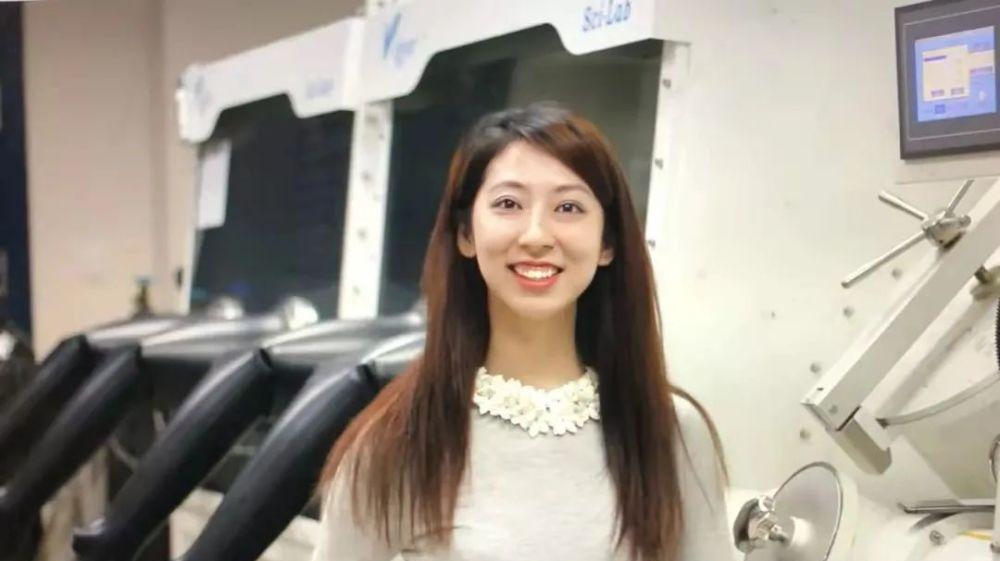In the past few days, the report that "Huazhong University of Science and Technology has a post-90s high-value doctoral supervisor" has caught fire, and the person concerned is Hu Yue, an associate professor and doctoral supervisor of the Wuhan National Research Center for Optoelectronics.

The report mentioned that she has been publishing academic achievements since she was an undergraduate, and was promoted to associate professor of Huazhong University of Science and Technology in 2018 and became a doctoral supervisor in 2019. In the past five years, Hu Yue has published more than 60 SCI papers, including 21 papers by the first author and corresponding author. At the same time, the report also mentioned that because of her "youthful and lively face", she was often mistaken for "master sister".
The report subsequently sparked controversy online. Some of Hu Yue's publicity reports were scanned word by word, including college entrance examination results, academic achievements, and the ultra-high output of 60 SCI articles in 5 years, all of which were questioned one by one, and people even began to speculate about her family background, suspecting that she had "superior guidance".
Objectively speaking, 60 SCI papers published in 5 years are indeed very prominent, but must this pose a problem? Of course not. Academic achievements have always only looked at the true and false, not the quantity. The public questions scholars with "abnormal quantity", and can only make peripheral conjectures and accusations, which may not be in the academic category.
Academia, of course, will have geniuses, and there is no need to be surprised by those who are superior. If scholars are only framed by "it should be so", then the academic community may also be boring. If there are shining academic stars, of course, they should be given sufficient space, and their surprising achievements should also be treated normally.
It should also be emphasized that the academic life of a scholar is very long, especially with the large amount of academic information on the Internet, the span and breadth of a scholar's scrutiny have also expanded. Therefore, whether Hu Yue's scientific research achievements are excellent or not may wish to be handed over to the professional judgment of the academic community, and if there is a problem, it will be handled according to the rules. Public opinion should respect the threshold of the profession, and academic peer review will naturally play a role in screening the survival of the fittest, and this "pickiness" from academia and professions will accompany a scholar's life.
A scholar from a professional field, but in the public eye is scrutinized, this kind of event itself is worth thinking about. In fact, this scholar entered the field of public opinion by "reducing the dimension" of academic discourse into popular discourse, and then reached the level that it can be "judged" by ordinary readers.
For example, in the propaganda, what stands out is her young beauty, the future is immeasurable, her works are equal to the body, the paper is prolific, as for the professional academic evaluation, the language is not clear, it is difficult for readers to understand the value of the paper. Then there is a paradox scene, only papers, only titles, only academic qualifications and other issues that have been criticized by the academic community, in the propaganda of scholars, they have been taken out, and the appearance that has nothing to do with academia has also been emphasized. The reason is not him, but it is easy to be understood by the public, and it is also easy to have topics and traffic.
Because of this, these scholars are inevitably examined by the public with a "layman's perspective". This kind of judgment may not be professional in many cases, and it is irrelevant to the scientific research identification of a scholar, but it may lead to various unexpected disputes, causing pressure on the parties and interfering with professional academic evaluation.
In recent years, many colleges and universities have almost launched a number of young, good-looking academic stars in batches, and academic worship, young worship, and face value worship are mixed together. And whenever these characters appear, it is almost inevitable to attract a wave of brushing screens in the field of public opinion. Some people are envious, some people feel the anxiety of their peers, and of course, some people dig up their academic background and try to disenchant them.
The circle-breaking behavior of people in the academic circle is of course beneficial and helps to enrich the public's understanding of scientific research. But it should also be understood that there is a threshold for scholarship after all, the exploration in the hall may not be suitable for the board in the hall, and the most critical evaluation of scholarship must come from the academic circle itself and from the recognition of academic colleagues.
Academics have their own coordinate system, and it is easy to produce visual distortion when entering other dimensions. What kind of perspective society should use to introduce and understand people in academic circles is enough to provide some reflection.
(Originally titled "Looking at the "Post-90s Doctoral Supervisors" or More from an Academic Perspective" by Wang Zimo Source Guangming Daily)